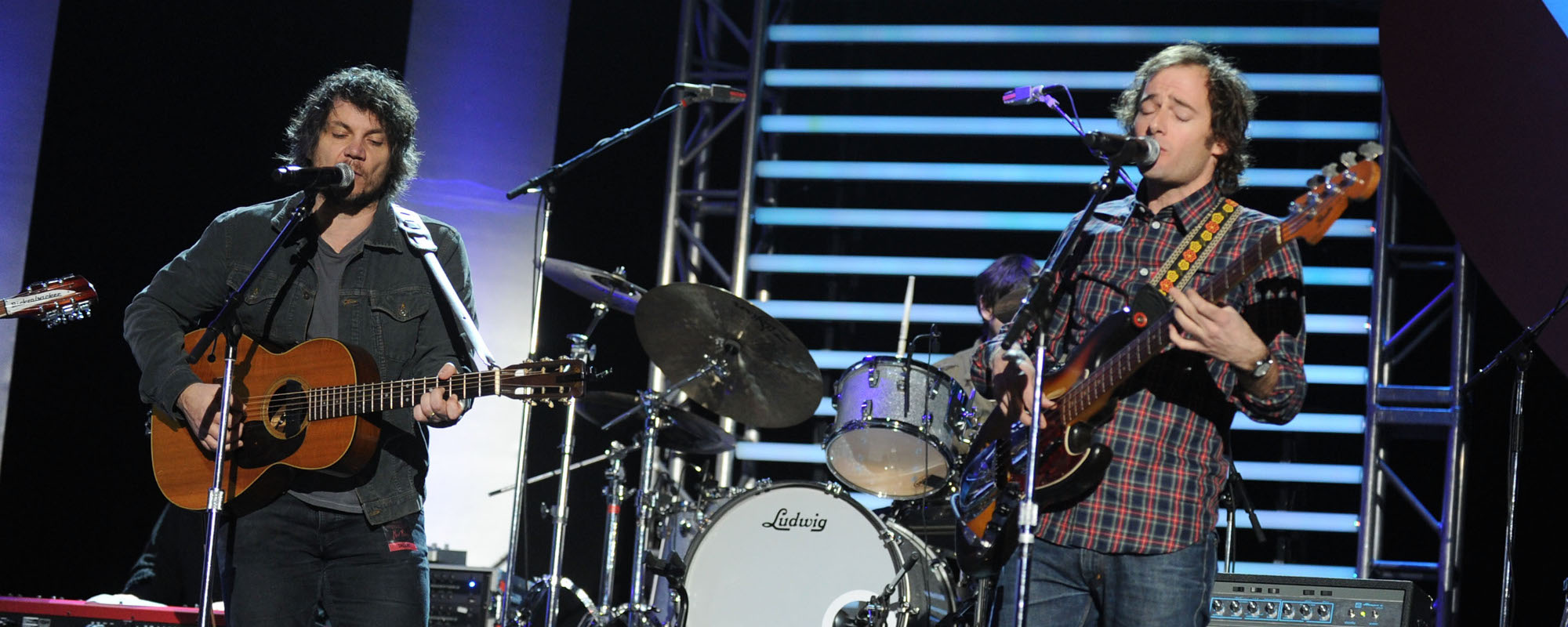
“Though they’re both based on personal experience,” Thompson concedes, “those songs can perhaps be seen as metaphors for a bigger picture. It’s fun to go from small to large and from large to small, and I have both kinds of songs. There is a certain acceptable language of popular/folk music, and a certain parade of acceptable characters and backdrops – what you might call ‘genre.’ You can bring a grandiose idea into the song, and if you dress it up as a love triangle or a family squabble, it will be acceptable to the genre’s audience, and also have some more oomph to it for those who like their experience layered.”
Videos by American Songwriter
The new album climaxes with “Guitar Heroes,” a nearly eight-minute song that pays tribute to Thompson’s earliest role models on the instrument. He begins by having his 15-year-old self complain that he can’t go out with his friends on a Saturday night, because he has to figure out how to play Django Reinhardt’s “Melodie au Crepuscule.” The song then goes on to explain that he didn’t do his homework because he was learning Les Paul’s “Caravan,” didn’t finish his house chores because he was learning Chuck Berry’s “Little Queenie,” didn’t pay attention to his girlfriend because he was learning James Burton’s “Suzie Q” and didn’t get a job because he was learning Hank Marvin’s “FBI.” After each tale of woe, Thompson plays a perfect version of each tune.
“It’s pretty true,” Thompson confesses. “School suffered; love life suffered – all because of music. I was very distracted. From the time I picked up a guitar at the age of 10, everything else became secondary. Any guitar player you can name, there’s a period of life where they isolated themselves. You can’t be that social; at some point you have to put some hours in.” He pauses and then wisecracks, “Let’s face it. Where’s school gonna get you anyway?”
Bill Kirchen quotes even more guitarists on his legendary eight-minute version of “Hot Rod Lincoln,” where his hot rod passes car after car driven by a famous guitarist, everyone from Muddy Waters to Jimi Hendrix, and he salutes each with the driver’s signature lick. Thompson wasn’t familiar with that song; he was inspired by the obscure country song, 1958’s “Springfield Guitar Social,” featuring singer Bill Wimberly and guitarist Thumbs Carllile. Wimberly sings about the most famous hillbilly guitarists of the era, and Carllile imitates each one in turn: Hank Garland, Grady Martin, Speedy West, Jimmy Bryant, Chet Atkins and Les Paul.
What’s remarkable about Thompson’s guitar playing, however, is not his speed or agility – though he has plenty of both – but rather the way every guitar fill and solo becomes an extension of the vocal. It’s as if the guitar assumes the character of the narrator in each song. Thus, on the new album, the guitar can sound wistful on “She Never Could Resist A Winding Road,” jaunty on “Beatnik Walking,” enigmatic on “Josephine” and vicious on “Long John Silver.”
“That’s the ambition: to make the guitar solo an extension of the character,” he confirms. “If you’re also the singer, it’s easier to do that, because you can phrase in a similar way as the vocal phrasing. You can still be working around the melody of the song. But even if you’re in a band playing someone else’s song, you should tap into the emotion. It shouldn’t be, ‘Here’s my 16 bars; let me show them what I can do.’”
Though he first made his reputation in Fairport Convention by electrifying Anglo-Celtic folk music in much the same way that Bob Dylan and the Byrds amplified American folk music, Thompson is equally adept at playing both electric and acoustic guitars. Due to the dire economics of touring for mid-level acts, he has done more solo-acoustic tours and fewer band tours in this century than in the last. He still prefers the electric guitar in the studio, and when fans at his unplugged shows asked for recordings that reflected what they had just heard, he realized that he didn’t have anything to sell them. That inspired last year’s album, Acoustic Classics.
“I don’t always like live recordings because the guitar can sound a little metallic,” he explains, “so I went in my little home studio and recorded versions of the songs as I play them solo. In some cases full-band versions are whittled down, and on others I’m now the singer instead of someone like Linda. In all cases, there’s a refinement and distillation that occurs with playing them hundreds of times. Plus, of course, I’m 10, 20, 30, 40 years older with a different viewpoint. My intention was to just sell this at shows, but management heard it and thought it should be a legit release, and so out it went. It got to #9 in the U.K. album charts.”
The new album’s title, Still, reflects that Thompson is still in constant motion, flying between his homes in London and Los Angeles, driving from one live show to the next, following one new song with another, one studio session with the next. “Or it could be read,” Thompson self-deprecatingly suggests in his own press release, “as ‘Is he still performing? I thought he died years ago.’”













Leave a Reply
Only members can comment. Become a member. Already a member? Log in.